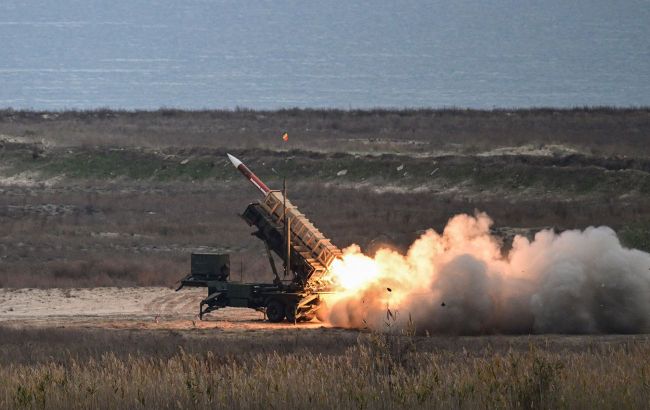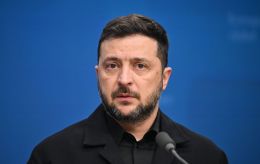Ukraine’s expectations and NATO’s ability to enforce no-fly zone may not materialize
 Illustrative photo (Getty Images)
Illustrative photo (Getty Images)
If we take into account the real military capabilities of NATO and Ukraine's expectations of their help in closing the skies, it may turn out that they will not be justified. But this does not mean that in a political sense, we should not compete for this, says Ivan Kyrychevskyi, an expert at the Defense Express Media and Consulting Companyю
At the beginning of this year, a scenario was discussed in which there is a possibility of Russia's direct armed aggression against NATO, in particular against the Baltic states, this summer. As we can see, this scenario has become irrelevant for the Russians - not only because they were very exhausted after the operation in Avdiivka, but also because they are stuck at the front in Ukraine and their weapons, bombs, and missiles continue to hit Ukraine, in particular, Kharkiv, instead of falling on European capitals. This should be conveyed to our allies - that it is in their interest to give us air defense systems.
The next point: as strange as it may sound now, even with our very limited capabilities, Ukraine probably has more anti-aircraft missile systems than most of the Alliance countries.
If we talk about Poland, it has only three Patriot batteries, which were supposed to replace the C-200, and two more British Sky Sabre (CAMM-ER) SAMs. This is the end of Poland's modern air defense systems list. They still have 15 old C-125s, as they gave some of them to Ukraine.
The situation in Romania is no better. They have one Patriot system in service. Three more have arrived and are in the process of being mastered by the personnel. Plus, there are a dozen Hawk systems that protect Bucharest. They also have about five more old Soviet S-75 air defense systems on paper, which remember Vietnam and are unsuitable for modern conditions. In Bulgaria, the most modern air defense systems are S-300s. Lithuania has 12 launchers for NASAMS systems, and Ukraine probably has the same number.
That is, it is not so much a military-technical solution when the Alliance countries can provide a no-fly zone here, but a military-political solution: something is still preventing you from doing so, and Russia could have already bombed you in the summer.
Ukraine doesn't have much reason to hope that NATO will come and start shooting down everything here. Because in three years we have built even stronger air defense. On the other hand, this political issue needs to be pressed.
It even turns out that the involvement of NATO missile systems to shoot down Russian missiles with the capabilities that Ukraine's neighbors have may not help. But Ukraine still needs to achieve this. Because, as far as I understand, no one has rejected the option of NATO units shooting down Russian missiles from Ukraine's territory, but no one is actively discussing it either.
West's authorization for strikes against Russia
The way I see the basic US policy in this matter is that we don't want you to hit Russia with our weapons, but the decision is yours. That is, from a formal political point of view, no one is stopping us from pressing the button in HIMARS that is responsible for launching ATACMS and pointing it somewhere in the direction of Russia.
But there is one important point. If you listen carefully to what Ukraine's officials say when they comment on this issue and how the Americans respond, the issue is not really about political permission. The issue is that we are asking for a regular flow of intelligence, that is, for this data to be supplied 24/7.
There is a problem with the regularity of intelligence supply to Ukraine - we saw an illustration of this literally in the public sphere after the destruction of the Russian ship Kovrovets in Crimea in May, which later turned out to be the Tsyklon. By analogy with the shell famine, Ukraine has a data famine. Therefore, Ukraine is not asking for formal permission to fire American missiles at the territory of Russia, but rather for data on Russian targets that will help us strike them.
And in this context, I suggest paying attention to one story that regularly appears in the Western media. They write that Ukraine is asking the Americans for MQ-9-Reaper UAVs. These are long-range drones that have not only an electronic station for reconnaissance but also radar. They could have given them to Ukraine so that it could conduct reconnaissance on its own, but they didn't want to give them to Ukraine. So it turns out that they don't want to give Ukraine intelligence, and they don't want to let Ukraine conduct its reconnaissance. And what's the point of firing ATACMS in the middle of nowhere without a target?
One way or another, Ukraine still has to push this issue, but with what result is an open question.

